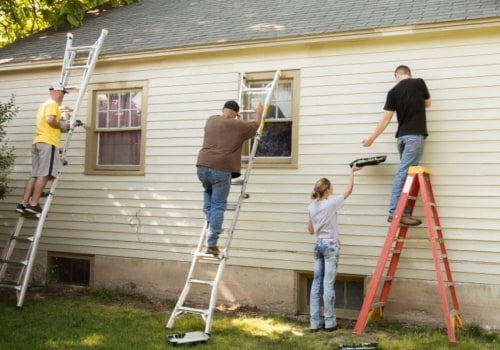Flipping houses has long been touted as a potentially lucrative path to wealth, often glamorized by reality TV shows and success stories shared online. But the question remains: can flipping houses actually make you rich? The answer is yes—but with significant caveats. Like any business venture, success in house flipping requires knowledge, experience, capital, and a solid strategy. Flipping a house involves buying a property at a lower price—typically because it’s distressed, outdated, or undervalued—renovating it to improve its appeal and market value, and then selling it for a profit. While the basic formula seems simple, the reality is far more complex. The key to profitability lies in buying low, renovating wisely, and selling high—all within a carefully calculated budget and timeline. Those who master this formula and can repeat it at scale do have the potential to generate substantial wealth over time.
The Formula for Profit
The most successful house flippers understand that profit is made when you buy, not just when you sell. This means finding properties below market value where the cost of necessary renovations still allows room for a healthy profit margin. Savvy investors are skilled at analyzing real estate markets, understanding neighborhood trends, and knowing exactly what features buyers are looking for. They also build strong relationships with real estate agents, wholesalers, contractors, and lenders to streamline every step of the process. Once a property is purchased, renovations must be managed with precision—every dollar spent must contribute to increasing the final resale value. This involves focusing on high-impact upgrades such as kitchens, bathrooms, flooring, and curb appeal, while avoiding over-improvements that don’t yield proportional returns.
Managing Risk and Costly Surprises
While flipping houses can be profitable, it also carries a significant amount of financial risk. Unexpected issues such as foundational cracks, mold, plumbing failures, or roof damage can quickly erode profits if not factored into the initial budget. Successful flippers build contingency buffers into their renovation plans and conduct thorough inspections before finalizing purchases. They also understand the importance of time—every month a property sits unsold incurs holding costs such as property taxes, insurance, utilities, and interest on financing. Delays in permits, material shortages, or labor constraints can further complicate timelines and strain cash flow. For this reason, having access to capital and a well-connected team of reliable professionals is essential to keeping projects on track and profitable.
The Role of Market Timing
Another crucial element in becoming rich through house flipping is market timing. Flipping in a strong seller’s market, where inventory is low and demand is high, increases the likelihood of quick sales at favorable prices. However, relying solely on market conditions can be risky. The best investors know how to succeed regardless of short-term fluctuations by focusing on fundamentals: location, value-add opportunities, and smart renovation strategies. They diversify across different neighborhoods or property types to reduce exposure and build resilience into their portfolios. Some flippers even shift to holding properties as rentals when market conditions change, allowing them to generate income while waiting for better selling opportunities.
Scaling Up and Reinvesting Profits
Wealth in house flipping doesn’t usually come from a single project. While one successful flip can yield a five- or even six-figure profit, true financial growth comes from reinvesting earnings into additional projects. Scaling up—either by flipping multiple properties at once or moving into larger, more complex projects—requires systems, delegation, and often partnerships. As investors build experience and reputation, they may attract funding from private lenders or partners, further expanding their reach. At this level, house flipping transitions from side hustle to full-scale business, with the potential to generate consistent income and long-term wealth.
Conclusion: Wealth Through Strategy, Not Luck
In conclusion, flipping houses can make you rich, but it’s far from a get-rich-quick scheme. It requires a deep understanding of real estate, construction, budgeting, and market dynamics. Those who treat it like a business—investing time in education, building strong teams, and making data-driven decisions—stand the best chance of turning profits into sustained financial success. With discipline, adaptability, and the right approach, house flipping can absolutely be a pathway to wealth.



